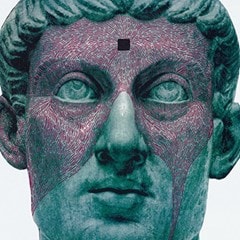

“A handy introduction to the main themes of Ockham’s philosophy: nominalism, Ockham’s famous Razor, his philosophy of language, physics, ethics, and political theory. “A lucid introduction to William of Ockham that, in fitting tribute to its subject, is philosophically engaging from start to finish.” In Ockham Explained, Rondo Keele gives us a vivid, accurate picture of Ockham, his life, his thought, and his contribution to philosophy. Others call him the first modern philosopher or the skeptic who put an end to the harmonious medieval alliance of faith and reason. Some people claim he invented the idea of church-state separation. He had a new and uncompromising approach to logic and language. William of Ockham was very original and provocative. Another is a forty-year-old Englishman, the greatest European thinker of his day, whose career is about to be wrecked by his defiance of the Pope and flight into exile. But they are not simple thieves, in fact they are all Franciscans themselves, and one of them is the Minister General of the Order. These men are going to steal it, and take it with them, as they slip out of the compound. Among the items in their small bundles is the official seal of the Franciscan Order, necessary for the Order to conduct its official business.

Their apartments in the old episcopal palace of Avignon, France, are otherwise quiet and still. On May 26th, 1328, under cover of night, a group of figures moves in darkness, preparing for a long journey. The concluding chapter sums up Ockham's compelling philosophical personality and explains his modern appeal

Subsequent chapters cover his ideas on language and logic his metaphysics and vaunted "razor," as well as his opponents’ "anti-razor" theories his invention of the church-state separation and much more. It begins with an overview of the philosopher's youth and the Aristotelian philosophy he studied as a boy. This book provides a thorough grounding in Ockham’s life and his many contributions to philosophy. At 28, Ockham was a conservative English theologian focused obsessively on the nature of language, but by 40, he had transformed into a fugitive friar, accused of heresy, and finally protected by the German emperor as he composed incendiary treatises calling for strong limits on papal authority. His eventful and controversial life was marked by sharp career moves and academic and ecclesiastical battles. Ockham's use of recta ratio is less robust if Ockham is a rationalist, it is at best a quite limited version of medieval rationalism.Ockham Explained is an important and much-needed resource on William of Ockham, one of the most important philosophers of the Middle Ages. Ockham rejects a cluster of concepts Aquinas uses in spelling out his theory of natural law-natural kind, substantial form, intellect superior to will, final cause-all of which are necessary conditions for Aquinas's Aristotelian-based meta-ethics, which is a form of ethical naturalism. This chapter articulates Aquinas's use of recta ratio, indicates differences with Ockham, and suggests that Ockham is at most a “good reasons philosopher.” Aquinas defines human nature as a natural kind determined by dispositional properties with the final cause rooted in the formal cause. Brian Tierney posits Ockham as a “rationalist” while Janet Coleman suggests that Ockham's right action is “objectively rational”.

This “revisionist” account depends upon a reading of “ recta ratio”. Recent scholarship argues that William of Ockham was not the radical voluntarist that historians of philosophy sometimes claimed.


 0 kommentar(er)
0 kommentar(er)
